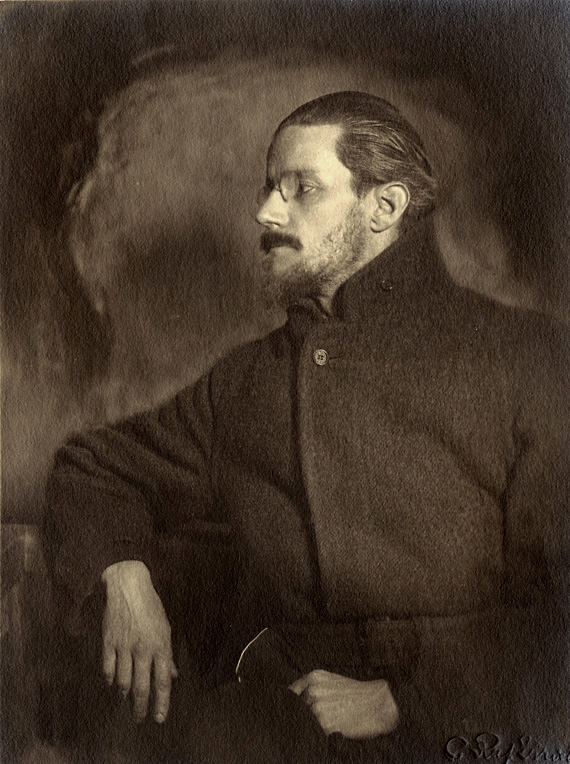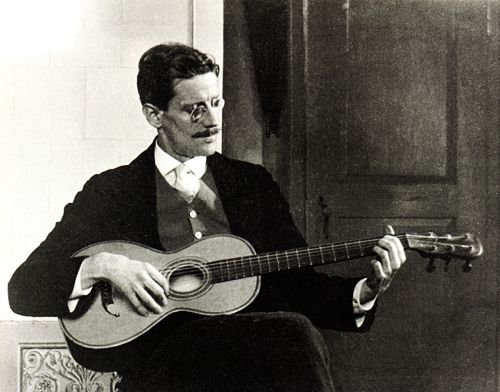How James Joyce Was (Nearly) A Famous Singer – An odd but true tale
James Joyce is mainly known for his outstanding achievement as an Irish novelist, less well known is that he dreamed of becoming a tenor. His father was considered a well regarded tenor singer, though he did not take it up as a career, and John Stanlius Joyce passed this ability onto his son who came closer to success with it.
The young Joyce had many flirtations with different careers and vocations. Before any of his novels he wrote chamber music, a slim collection of poems displaying wonderful musicality. The name chamber music appealed to Joyce due to both its relation to music and the evident allusion to tinkling in a chamber pot. While such puns delighted Joyce he did in fact have a real passion for music.
Swedish composer Othmar Schoek was once surprised to find the novelist at his door asking if he were the one who composed a piece he’d recently heard. The only other artist who seemed worthy of such praise was Joyce’s beloved Ibsen. But what of Joyce’s own musical achievement?
In 1903 he met John McCormack, the man who would become one of Ireland’s greatest tenors. It was McCormack who inspired Joyce to enter the Feis Ceol tenor competition. Like other shadow-like doubles in Joyce’s life such as writer James Stephens, McCormack’s destiny as tenor mirrors the aspirations of the young man at the time.
Joyce received vocal training from Vincent O’Connor, who trained McCormack for the 1903 feis. He thought Joyce had a strong chance of winning, and he was not alone. Judge Luigi Denza was already thinking of awarding Joyce first place in the competition. The stage seemed set for Joyce to triumph, but like some of his other forays outside of writing, fate seemed to steer him out of an otherwise promising career.
For one thing, Joyce seemed to have no interest in formally learning music. He was much more interested in the words behind the music. While this exasperated his coach there was still hope he could win.
On the 16th May Joyce appeared on stage at the Feis in his linen suit and butterfly tie. He sang “whom the Lord Chasteneth,” and “Come Ye Children”, impressing the crowd and judges. His hopes were dashed however, when he was asked to perform a piece of music on sight. Joyce was uncomfortable with this, and stormed off the stage. Because of his inability to pass the test, Joyce could only be awarded an honorable mention, but the judges actually gave him a medal for third place after one of the other contestants was disqualified.
Some accounts hold that Joyce tossed the medal into the Liffey afterwards, but he gave it to his aunt, with whom it stayed until his brother Stanislaus got it. There were a myriad of reasons why Joyce left Ireland, and why he did not become a singer despite showing promise. Around this time he had begun work on “Stephen Hero”, the novel which would go on to become “A Portrait of the Artists As A Young Man”. Clearly Joyce had divided ambitions, yet when he was offered further singing lessons at this time he declined, perhaps indicating the Feis had soured him on the idea.
Throughout his life he followed John McCormack’s career in the press, and even tried to get him to perform pieces from Chamber Music. One of the highlights of Joyce’s singing career was sharing a stage with him in 1904, and their teacher lamented that if Joyce had pursued singing to his full potential, he would have been second only to McCormack. Joyce however, could never be second to anyone, and would instead go on to write one of the most singularly original Irish novels in Ulysses.










